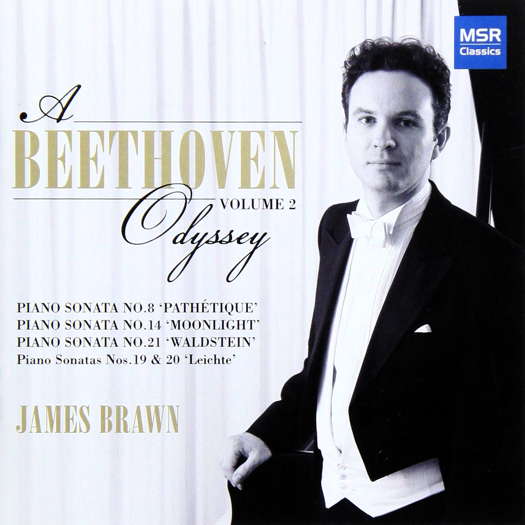- Bartók Plus Opera Festival
- Dragonetti
- Red Priest Recordings
- Melba Recordings
- Madeleine Dring
- Rebecca Clarke: A Lover's Dirge
- Vatican City
- Sidney Marquez Boquiren
Utterly Compelling
Errolyn Wallen's sequel to Purcell's 'Dido and Aeneas', experienced by MIKE WHEELER
What happens after the end of Purcell’s Dido and Aeneas, when Trojan prince Aeneas sails off to found his new empire (Rome), leaving Dido, the Carthaginian queen to die, abandoned and heartbroken? That's the question addressed by composer Errollyn Wallen and librettist Wesley Stace in Dido's Ghost, in which the Purcell is incorporated as an opera-within-an-opera - Buxton Opera House, Buxton, UK, 11 July 2021. The basic premise is that Aeneas is unable to forget Dido, even after he has married his new wife, Lavinia. The arrival of Dido's sister, Anna, who has survived a shipwreck, precipitates the emotional crisis, with the increasingly jealous Lavinia presenting a performance of Purcell's opera, in which the line between audience and performers becomes blurred.
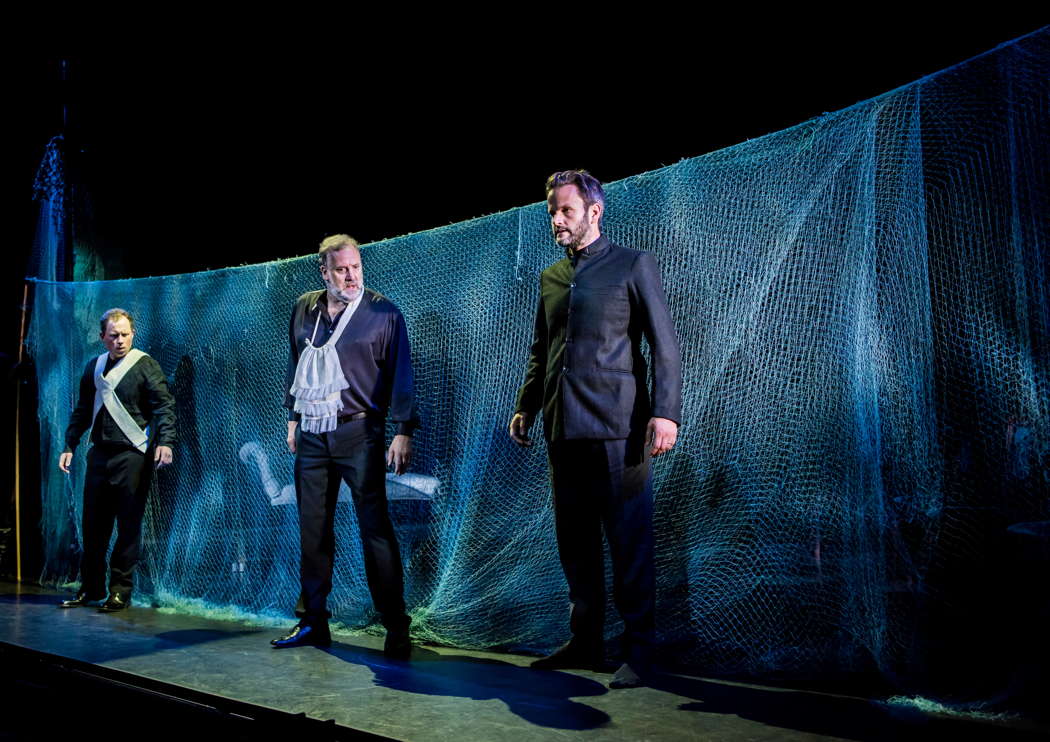
From left to right: David Lee as Aeneas' son Ascanius, Matthew Brook as Aeneas and Timothy Dickinson as Elymas in Dido's Ghost at the Buxton Festival. Photo © 2021 Genevieve Girling
Director Frederic Wake-Walker's economical production places the chorus at the back of the stage, and incorporates a small secondary stage at the front of the acting area. We are thrown into the thick of the action in the opening storm, with lighting designer Ben Pickersgill's intermittently flashing spotlights punctuating the dumbshow of Aeneas meeting Dido, who turns away from him.
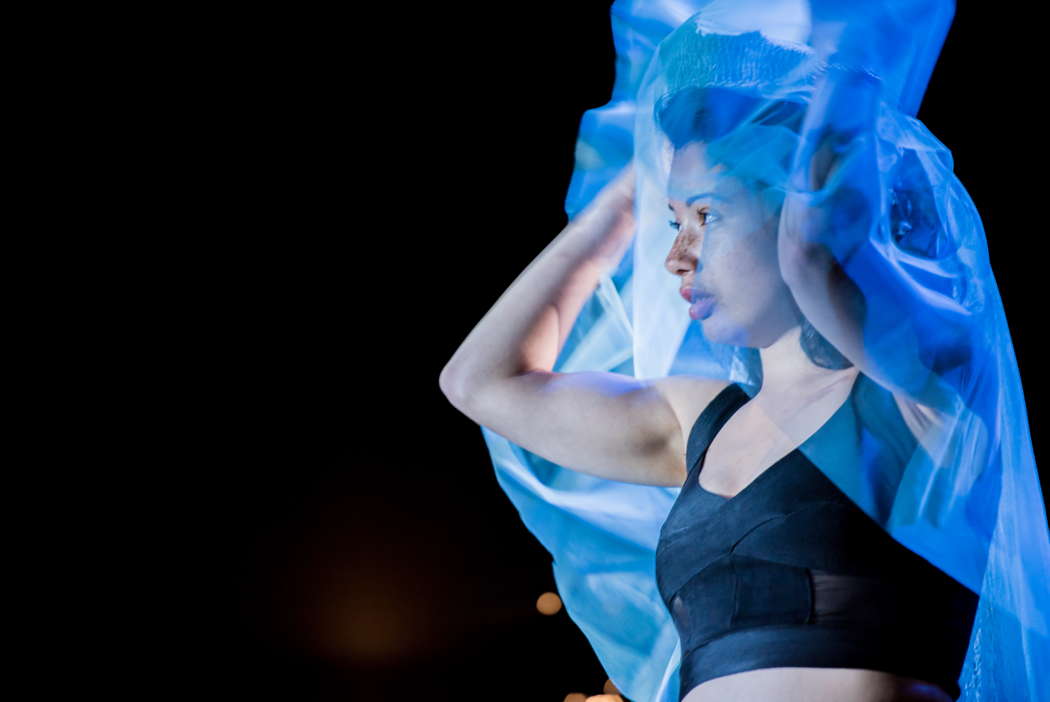
Isabelle Peters as Anna and as Dido in Dido's Ghost at the Buxton Festival. Photo © 2021 Genevieve Girling
Wallen's score readily navigates the historical space between Purcell and contemporary styles, vividly descriptive in the storm, and emotionally supportive when the anguished Aeneas – Matthew Brook, charting his character's growing depth with complete assurance – describes his meeting with Dido. Music and action move seamlessly into the staging of Purcell's original. Anna, clear-voiced mezzo Isabelle Peters, takes the role of Dido, and Aeneas steps out of the on-stage audience to play himself. I did wonder whether separate casts would have worked better, providing an emotional distance for the characters to observe their own behaviour. Nardus Williams is a forceful Belinda, her stage-management of the Purcell suggesting her off-stage role in Lavinia's court.
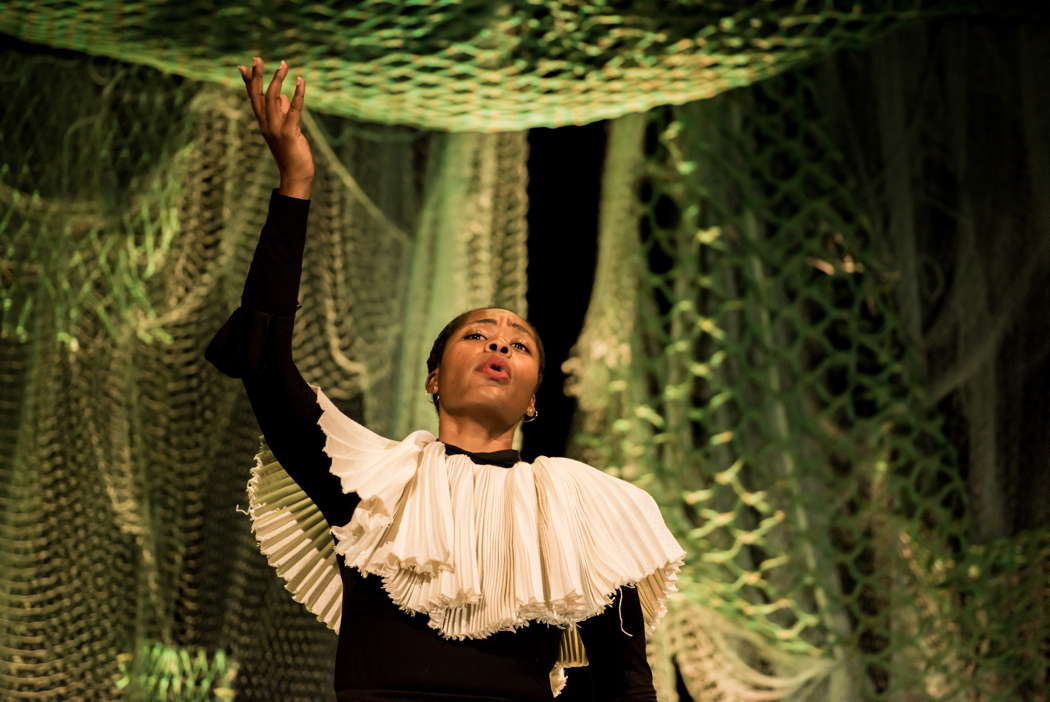
Nardus Williams as Belinda in Dido's Ghost at the Buxton Festival. Photo © 2021 Genevieve Girling
Jessica Gillingwater's increasingly edgy Lavinia also enters the stage action, applying make-up to become the Spirit who commands Aeneas to leave Carthage. Lavinia's steward, Elymas - bass Timothy Dickinson – takes the role of the Sorceror, supported by two lively chorus-members, Lucy Goddard and Judy Brown, as the two Witches – and thank goodness the days of silly, cackly voices seem to be over.
As they celebrate their triumph, watching Aeneas and his ships sailing away, Purcell's opera is interrupted when Anna wakes abruptly from a dream – an electrifying moment, this – in which Dido has warned her that Lavinia is plotting her death. She runs off, and Aeneas goes to look for her, confronting Dido's ghost for one last time, as she shelters her sister. Together, Dido and Aeneas begin to deconstruct her climactic lament from Purcell's original, 'When I am laid in earth', but in a final twist to the story, it's Aeneas who gets to sing it in full, with Matthew Brook's careful emotional pacing of his role achieving powerful tragic stature. To Purcell's final chorus, 'With drooping wings', touchingly sung, Wallen adds a moving orchestral epilogue of her own.
The Dunedin Consort's instrumentalists, supplemented by electric bass guitar and percussion, and with John Butt's lively direction from the harpsichord, are at one with the singers, and turn in lively, energetic dance rhythms.
I must admit I did feel somewhat disengaged emotionally throughout much of Dido's Ghost, and anyone completely new to the story might have felt unsure of what was going on. But the final twenty minutes or so are utterly compelling, and I suspect the opera will gain in stature the more it is performed.
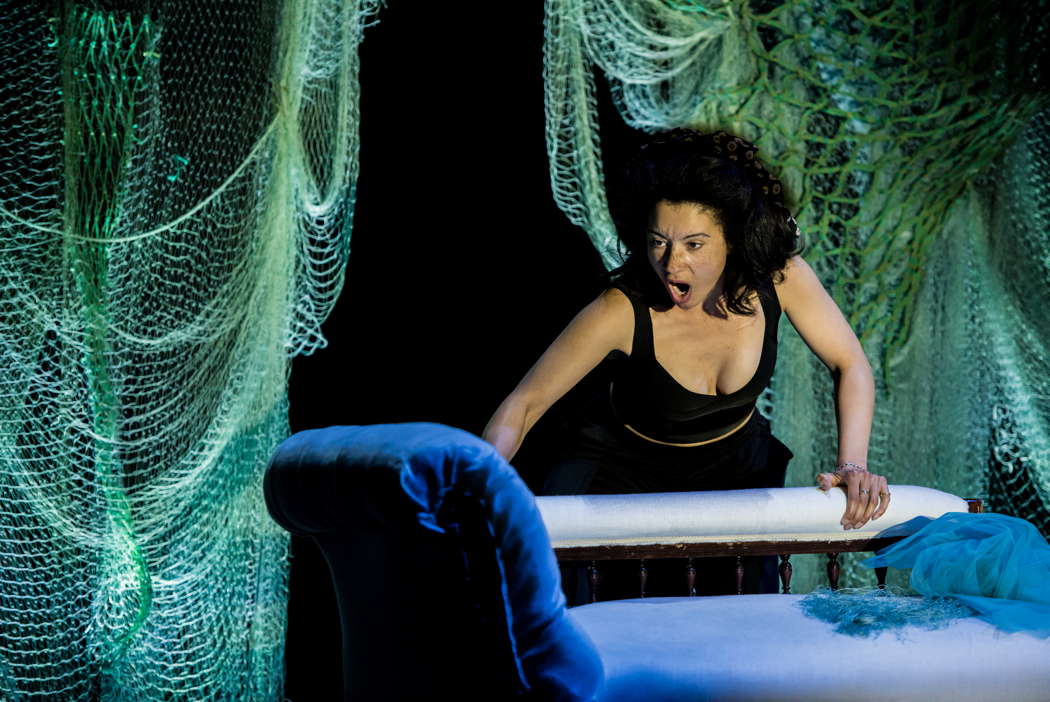
Isabelle Peters as Anna and as Dido in Dido's Ghost at the Buxton Festival. Photo © 2021 Genevieve Girling
It was jointly commissioned by the Buxton Festival in partnership with the Barbican Centre, Mahogany Opera, Philharmonia Baroque Orchestra & Chorale, Edinburgh International Festival and the Dunedin Consort. There are three further performances, with a few changes of cast, at the Edinburgh Festival between 20 and 22 August 2021.
Copyright © 24 July 2021
Mike Wheeler,
Derby UK



